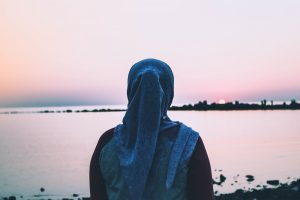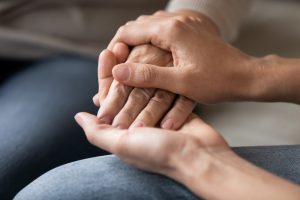
Munavara Ghauri, UK
The tragic case of the disappearance of Sarah Everard, the 33-year-old Londoner who was abducted and then murdered as she walked home, has shocked the nation. As news of the discovery of human remains broke, thousands of women took to social media to express their frequent fears whilst walking alone in the dark with the hashtags #SarahEverard and #TooManyMen. The Green Party Peer, Baroness Jones, called for a curfew on men walking after 6 pm to be legislated so as to ‘make women a lot safer.’ [1] She later expressed that her proposal would be better than the advice issued by the Metropolitan Police telling women to stay indoors. Shocking statistics of the level of harassment currently faced by women on the streets of the UK by a YouGov poll have also been highlighted. 97% of women aged 18-24 have experienced some form of sexual harassment and 96% of these women do not even report it, having little faith in the criminal system. [2]
As a consequence of the Metropolitan Police’s advice to women in London, many women took to social media to indignantly challenge why women are expected to change their behaviour to prevent such horrific crimes from being perpetrated, as if shifting the responsibility from men. So, what is the solution? Should women become recluses or men be curfewed? With whom does the responsibility of protecting women lie? Men or women?
According to Islam, there should be a collective approach in tackling this issue. It also attributes some responsibility to the State, so in reality, it has to be a collective effort to be successful. Islam considers the state/governing power as a shepherd of a flock, obliged to protect its flock or people. Sir Muhammad Zafrulla Khan has explained:
‘Islam regards the state as a shepherd…as a shepherd is bound to protect and look after the flock and provide for all its needs – keeping the sheep from straying, guarding them from the prowling wolf, feeding and housing them…so it is the duty of the Islamic state to safeguard its people against dissension, disorder, disturbance, and oppression.’ [3]
The responsibilities of men to protect women in society become clear from the Holy Qur’an. In chapter 24 verse 31, men are addressed and commanded before any guidance is given to women:
‘Say to the believing men to restrain their looks and guard their private parts. That is purer for them.’ [4]
So, the onus is first put on men not to look/glare/leer at women. Furthermore, this Qur’anic injunction also suggests that men keep a distance from women and so give them space in order to avoid any inadvertent glances in their direction. Thus, the safe space that women are rightly demanding currently (e.g. UN Women UK’s Safe Spaces Now project), was intimated by the Holy Quran 1400 years ago.
The Holy Prophet (sa) of Islam reiterated this message when he advised men:
‘Cast down your eyes, eschew all mischief, and abstain from conduct that leads to the Fire.’ [5]
The founder of the Ahmadiyya Muslim Community, Hazrat Mirza Ghulam Ahmad (as), was to further elaborate that protecting women is the responsibility of both the sexes:
‘The Islamic injunction that men and women should both restrain themselves in certain ways, aims at safeguarding them against slipping and stumbling; for in the early stages, human beings are inclined towards vice…It is everyone’s duty to safeguard himself.’ [6]
The Holy Prophet (sa) also understood how the presence of men in public spaces in groups or gangs could be intimidating and a potential nuisance to others as he was to guide his companions:
‘Refrain from sitting along the streets. Someone said: Messenger of Allah, there is no other place for us to converse together. He observed: Then you must render its due. He was asked: What is the due of the street? He said: Guard your looks, let no one be put to inconvenience, return the salutation of peace, enjoin good and forbid evil.’ [7]
So, even if there is a compulsion for men to use public spaces, they are again warned not to stare at women and to behave well.
In Islam, a Muslim woman’s responsibility to protect herself means that she should aspire to adopt the principles of the veil. The Islamic teaching of the veil (purdah) [8] is often perceived by others as a form of oppression, a dress code which is forced upon women to suppress and marginalise them in society. In fact, the opposite is true as purdah is meant to be a means of protection for women by which they can safely and freely conduct the business of their daily lives. Purdah is one element of a multitude of teachings in Islam that seek to protect the more vulnerable groups in society, such as widows and orphans as well as women. By covering up, as the wives of the Holy Prophet (sa) were guided to do in Chapter 33 of the Holy Qur’an, it is suggested that there are less chances of women being ‘molested’ [9]. Islam teaches that both men and women have to be proactive in maintaining societal peace. For this cause, any individualistic ideology is discarded in order to help society at large.
The Fourth Worldwide Head of the Ahmadiyya Community, Hazrat Mirza Tahir Ahmad (rh), said that people grossly misunderstood the concept of purdah in the West and that:
‘Through the teachings of segregation, sexual anarchy was brought to a sudden halt. Order between male and female relationship was established on the basis of deep moral principles…The only thing Islam would not endure would be to turn women in to playthings, to be exploited or left at the mercy of male vulgarity. Islam does not promote such attitudes towards women.’ [10]
The national debate about women’s safety in the UK that is currently raging has also sparked men to question how they can reduce women’s anxieties outside. Women have responded eagerly with tips such as that men should keep a distance from women, neither walking too close behind women nor towards them, giving women space, crossing the road if possible, being audible near women such as by talking on a phone, or announcing themselves as a runner/biker who is passing. [11]
Again, the Holy Prophet (sa) of Islam provided invaluable wisdom about the public interactions of men and women. He said to men:
‘Beware of being alone with strange (unknown) women. A man alone with a woman outside the prohibited degrees may be tempted.’ [12]
He also taught,
‘When you meet two women coming from the opposite direction, do not pass between them; pass on their right or left.’ [13]
In the contemporary Arab society of the Holy Prophet’s (sa) era, it was uncommon for women to walk outside alone. Thus, the suggestion here was that to even break up a party of two women was also a way of increasing women’s vulnerability and should be avoided.
Equally, the Holy Prophet (sa) advised both men and women:
‘If people were to realize the hazards of travelling alone, no one would ever travel alone by night.’ [14]
Islam is meant to be a perfect faith as God Almighty Himself declares in the Holy Qur’an:
‘This day have I perfected your religion for you and completed My favour upon you and have chosen for you Islam as a religion.’ [15]
Hence, Islam’s principles and teachings are timeless. Were such insightful teachings to be adopted universally, women could remain safe and secure.
About the Author: Munavara Ghauri BA (Hons) Eng Lit, is married with 3 children and works as a School Librarian. She is currently serving as the Branch Leader for the Bournemouth Women’s Auxiliary Organization of the Ahmadiyya Muslim Community and is an Editor for the Women’s Section of The Review of Religions.
ENDNOTES
[2] unwomenuk.org/safe-spaces-now
[3] Muhammad Zafrulla Khan, Islam. Its Meaning for Modern Man. Islam International Publications Ltd, 2004, p.284.
[4] The Holy Qur’an 24:31
[5] Muhammad Zafrulla Khan, Wisdom of the Holy Prophet, The London Mosque,1981, p47.
[6] The Essence of Islam, Vol III, Islam International Publications Ltd, 2005, p.330.
[7] Muhammad Zafrulla Khan, Wisdom of the Holy Prophet, The London Mosque,1981, p46.
[8] The Islamic practice of Muslim women to cover their heads, bodies and possibly faces with loose, outer garments whilst in the presence of non-related men.
[9] Holy Qur’an, Ch.33V.60
[10] Mirza Tahir Ahmad, Islam’s Response to Contemporary Issues, Islam International Publications Ltd, 2007, pps.91-93.
[11] The Guardian, Thurs 11 Mar, 2021, p.5.
[12] Muhammad Zafrulla Khan, Wisdom of the Holy Prophet, The London Mosque,1981, p9.
[13] Ibid.
[14] Muhammad Zafrulla Khan, Wisdom of the Holy Prophet, The London Mosque,1981, p87.
[15] The Holy Qur’an 5:4




Add Comment